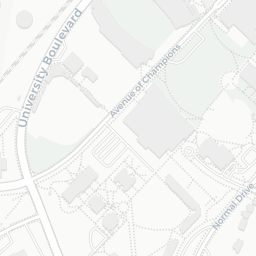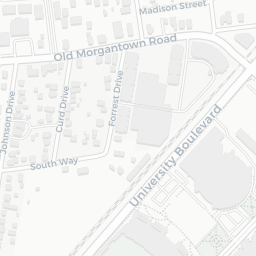Counseling and Student Affairs
Description of Careers in Student Affairs
What is Student Affairs?
http://itsdrmordecai.squarespace.com/videos/
EVER CONSIDERED A CAREER IN COLLEGE STUDENT AFFAIRS?
If you are a creative and energetic person, like the idea of working with people on a personal level, are interested in human growth and development and are stimulated by the intellectual challenges and aesthetic physical environment of the college campus, you should consider a career in college student affairs.
Student affairs professionals work with students individually and in groups, to help them gain the maximum success and benefit from their college experience and to promote the personal growth and development of the "whole" student. A broad range of career specializations are available with many entry level positions available each year in colleges and universities nationwide.
Admissions
Admissions professionals are primarily responsible for recruiting and admitting students to the institution. Admissions specialists market and promote the institution to potential students. They recruit those students whose educational needs are best matched by the institution's programs. Admissions professionals are often responsible, in collaboration with other student affairs departments, for developing programs to help students succeed at the institution. Entry level positions in Admissions generally require a bachelor's degree while a master's degree is usually preferred for upper management.
Alcohol and Drug Education
Professionals in this relatively new student affairs field are primarily responsible for developing campus wide educational programs regarding problems associated with alcohol and other drug abuse. Alcohol and drug education specialists recommend campus alcohol and drug policies, conduct studies of university community members' attitudes, knowledge and behavior relative to alcohol and other drugs, and provide referral counseling for those who need extended treatment. A master's degree in counseling, student personnel, or health education is generally preferred for a professional position in this field.
Campus Activities and Student Organizations
Student activities specialists provide programs and activities designed to foster development of the "whole student." Through their participation in co-curricular activities and organizations, students are provided opportunities to develop leadership, planning, and organizational skills which will be useful to them in their future lives. A master's degree in college student personnel is usually required for positions in student activities though some entry level positions may require only a bachelor's degree.
Campus Student Center/Student Union
Professionals in this field manage student centers or unions which provide learning and social environments within which students can interact with one another while providing facilities and services that support the entire campus community in the areas of conference planning, retail services, and recreational opportunities. A master's degree in college student personnel is usually required for positions in student centers though some entry level positions may require only a bachelor's degree.
Career Services
Career services professionals help students identify and implement career plans. Career services may include career testing, career counseling to help students identify career and academic goals, a career information library, computerized career guidance, part-time employment services, job search counseling and educational programs, and direct placement services through full-time employment listings and on-campus interviews with employer organizations. A master's degree in education, student personnel, or counseling is usually required for professional positions in career services.
Counseling
College counseling professionals provide personal, social, and career counseling, individually and in groups, to help students increase self understanding,adjust to the demands of college life, and to resolve and cope with personal problems which may interfere with academic performance. Campus counseling centers may also provide such services as educational, career, and psychological testing, consultation with faculty and staff, supervised training of psychologist and counselor trainees, training for student paraprofessionals, and mental health seminars and workshops. A master's degree in counseling, clinical psychology, or social work is the minimum academic requirement for college counseling positions. A doctoral degree is frequently preferred or required.
Disabled Student Services
Specialists who work in college disabled student services provide counseling and coordinate a variety of assistance and advocacy programs to help disabled students overcome physical, environmental, and attitudinal barriers which may interfere with academic performance and success. Professionals in the field often serve as campus experts in physical accessibility and learning accommodations and policies necessary to afford an equal opportunity learning experience and environment for disabled students. Professional positions in disabled student services require a minimum of a bachelor's degree with frequent preference for a master's degree in student personnel, psychology, or rehabilitation counseling.
Financial Aid
Financial aid professionals assist students with matters relating to financing their college education. Specialists in this field are experts in the types of financial aid available to students and strategies for obtaining aid. They are also aware of federal, state, and local regulations which govern the provision of financial aid. Financial aid professionals work closely with students to help them make effective financial choices and decisions. Entry level positions may be obtained with a bachelor's degree; a master's degree in student personnel or related field may be required for counseling and management positions.
Greek Affairs
Greek Affairs offices for fraternities and sororities typically emphasize community building, socialization, and adherence to the values of scholarship, leadership, and community services. Special emphases are on educating for an understanding of differences and the elimination of alcohol abuse, drug use, and hazing. Some Greek organizations have houses, and Greek affairs professionals often are involved in the management of these houses. Staff for Greek affairs place a major emphasis on working with students to determine their own level of accountability and responsibility for their actions. Staff work in Greek affairs is particularly complex because of the dual role of educator and monitor who advocates for the interest of the students while protecting the institution from charges of liability.
International Student Services
International Student Services works directly with students who are not citizens of the USA. Through cultural and immigration counseling, these professionals are responsible for helping students make the transition from their home country to the higher education system in the United States. The main responsibility of these offices include immigration advising and reporting duties. Orientations, cultural advising, and programming are pivotal skills to best serve international students. Professionals in this field also look for ways to help internationalize the entire student body by linking international students to the campus at large. Some entry level positions can be obtained with a bachelor's degree, though most will prefer a master's degree for mid-level and beyond.
Learning Assistance Programs
Student affairs professionals in learning assistance centers provide academic counseling, tutoring, and educational programs to help students develop effective academic skills. Special attention is given to study habits and skills, textbook reading, class note taking methods and test taking skills. Professionals serve as a direct link between student affairs and academic departments. A master's degree in educational psychology, developmental education, or counseling is required for this field.
Recreational Sports
Professionals dealing with campus recreational programs at the university and college level establish and coordinate activities and events to promote healthy recreation and leisure opportunities among students and other members of the campus community. Campus recreation has grown to offer a wide variety of recreational programs to include outdoor recreation, intramural sports, sports clubs, informal recreation and non-credit instructional programs. A master's degree in recreational administration and/or a related field is required for professionals in this field.
Residence Life
Residence life professionals provide a living environment which is conducive to learning and which promotes individual and community responsibility. Residence life professionals are typically student affairs generalists in that they are involved in student development, administration, counseling students, and educational programming in campus residence halls. Although a master's degree in student personnel or related field is required for many professional positions in residence life, many institutions hire residence hall staff with a bachelor's degree.
Student Affairs Administration
The Vice President for Student Affairs and the Dean of Students are usually the chief student affairs administrative officers who provide overall management, supervision, and coordination of student affairs programs. Student affairs administrative staff are involved in the design, implementation, and evaluation of student affairs policies and procedures, and in decision-making areas that have direct impact on student life. The chief student affairs officer is generally a part of the institution's executive management team. A doctoral degree in higher education administration or college personnel, in addition to much experience in a variety of student affairs fields, is typically required for the position of Dean of Students or Vice President for Student Affairs.
Student Affairs Research and Evaluation
Research and evaluation professionals use a variety of research methods to expand the knowledge about student behavior and retention, improve student services and development programs, and assess the organizational effectiveness of student services. Professionals in this field should possess strong communication, analytical and consultation skills, and have an appropriate combination of coursework, training, and experience in statistics, research design, assessment, computer applications, programs planning, human development theory, and student affairs programs. A master's degree in psychology, education, student personnel, or a related field is generally required for a professional position in student affairs research and evaluation.
Student Judicial Programs
Student justice professionals coordinate and provide leadership for student judicial matters. Specialists in this field employ counseling skills and educational strategies to adjudicate conflicts and infractions of campus policies. Frequently, they work with student judicial committees and other disciplinary groups to provide students with experience in democratic living and group decision-making and problem-solving. A master's degree in student personnel, counseling, or a law degree are generally required for professional positions in this field.
Other Professional Specializations in Student Affairs
Career opportunities in student affairs are available for individuals in other professions who are interested in working with students in higher education environment. Many institutions employ a variety of medical specialists (i.e. physicians, nurses, radiologists, lab technicians, health educators, etc.) in student health centers which provide basic medical services and health education to students. Lawyers and paralegals may be hired to provide basic legal consultation to students. Systems analysts may be employed to implement computerized management information systems in student affairs departments. Law enforcement departments and some athletic programs are also parts of some student affairs divisions.
Qualifications
Entry level positions in student affairs frequently require a master's degree in college student personnel, counseling, or a related field. Many master's degree programs in college student affairs offer graduate research assistant positions, which can serve as the first professional experience in student affairs. There are also a variety of entry opportunities available to persons with a bachelor's degree who are interested in pursuing a student affairs career. A master's degree will generally be required for professional advancement. More advancement opportunities are available upon completion of a doctoral degree.
Other skills and qualities useful in student affairs work include counseling and communication skills, organization and leadership skills, creative problem solving and management skills and knowledge of human development. These special skills are developed as part of your graduate training.
Campus Resources & Information about the Program
Sources of Information
Directory of Graduate Preparation Programs in College Student Personnel (published by the American Association for Counseling and Development). Available from ACPA. Student Affairs Careers: Enhancing the College Experience by Audrey L. Rentz and Gary H. Knock. (published by American Association of Counseling and Development). Available from AACD, One Dupont Circle, Suite 360-A, Washington, D.C. 20036-1110. Phone: 202-835-2272.
Department of Counseling
and Student Affairs
Gary A. Ransdell Hall 3036
1906 College Heights Blvd. #51031,
Bowling Green, KY 42101-1030
(270) 745-4953
Program Info
- Clinical Mental Health Counseling
- Marriage, Couple, and Family Counseling
- JUMP in Counseling
- Student Affairs
Department Info




















